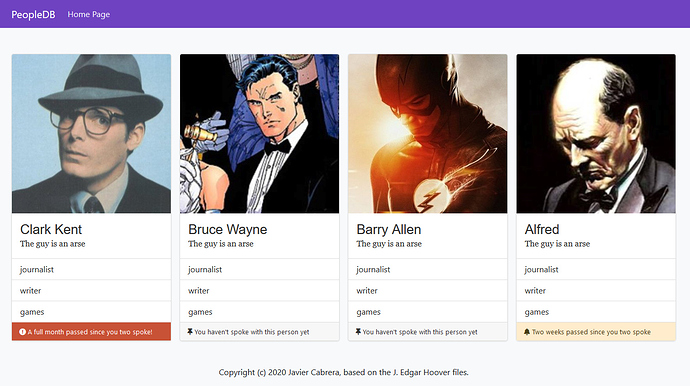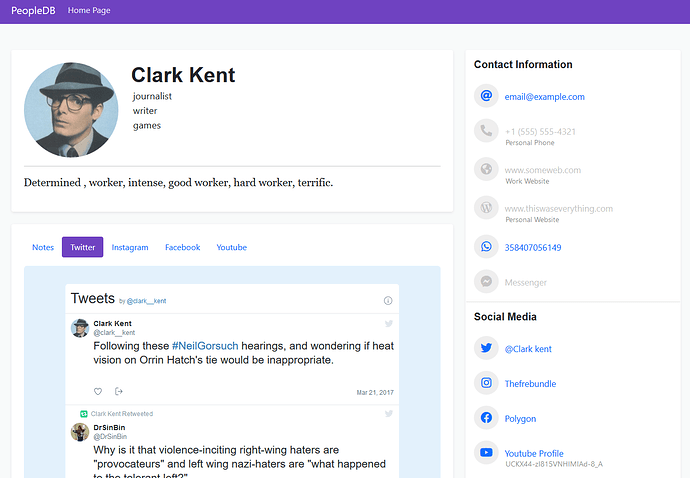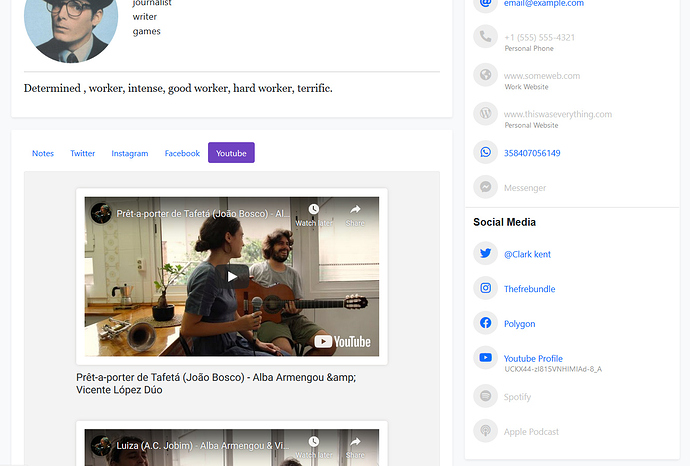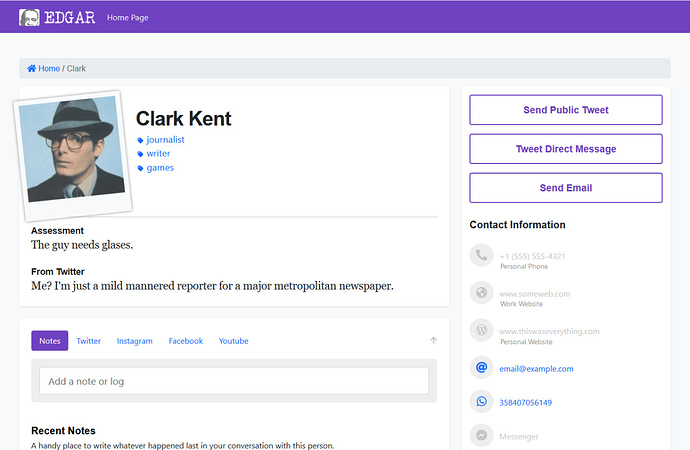THE WHY
=========
Before Facebook, before LinkedIn, before all that crap; there were files.
Now, it might sound like it is simple to keep tabs on what your network is doing with all these new tools, but to be honest, aside from showing you when someone’s birthday is coming, they do little for networking.
They can also harm you.
Zero privacy.
Everyone knows who you know.
You are giving away your entire contact network to a third party you probably might not even know about because the service where you are hosting everything has their own deals and interests in mind.
“The man” can look for ways of harming you because of “your associations”. A regular, free country can turn into a dictatorship or populist system overnight. Trust me, I’ve seen it happen.
Your competitors can access your entire contact network.
Your “reach” gets limited by an algorithm, so while you might post on your Instagram on Facebook every day thinking that way you are keeping everyone in the loop about what’s happen in your life or profession, the true is only a portion of those people are seeing your post. Thus, you end up paying to “boost” your posts, and in most cases, that doesn’t work either.
Or, you can go old school, and keep your own files. Make sure you phone people at least once a month and work to keep your contacts fresh.
THE HOW
=========
That is why I decided to create my own John Edgar Hoover database on people with Hugo. I call it, “PeopleDB” (now renamed to Edgar).
With Edgar, I can keep tabs with who is doing what and take notes of my past conversations with those individuals.
When you have six, ten people you speak to daily, Facebook might be enough. When you are getting ready to network with possibly twenty times that number, you need to start thinking on a system.
Edgar is my answer to that.
After I created my Hugo MediaWiki template, which for those who don’t know, is an exact replica of how Wikipedia works (sans the community edits), I decided I wanted to try a solution to my… networking problem with Hugo.
The home screen:
When I add someone, my front-matter it’s really simple.
---
title: "Clark Kent"
date: 2020-09-19T15:20:54-03:00
draft: false
tags: ["journalist","writer","games"]
desc: "The guy is an arse"
# CONTACT INFORMATION
email: email@example.com
phone:
website:
blog:
messenger:
whatsapp: "358407056100" # Omit any zeroes, brackets, or dashes
# SOCIAL MEDIA
twitter: clark__kent
instagram: thefrebundle
facebook: polygon
youtube: UCKX44-zI815VNHIMIAd-8_A
spotify:
apple:
---
Determined , worker, intense, good worker, hard worker, terrific.
After I fill in some details, like twitter handle, facebook page, youtube channel or whatever, I save the file and never EVER have to go back fiddling with it again, other than (of course) update that person’s information when/if needed.
All the magic happens in the profile page.
Each note gets saved in my browser thanks to LocalStorage. After each entry, the home will change and let me know how much I have gone by without keeping the contact fresh. One week, two weeks, or over a month.
This way, I can keep my contacts fresh, something you really need to be on top of when you are an author (for example).

Two weeks since I last spoke with Clark? I better ring him up for a coffee. A month? Time to invite him for lunch.
This is the way professional publicists keep their contacts. I’ve seen it before, but with over-complicated excel sheets. Hugo makes it easy.
On top of having my own notes on that person’s particular last encounter/chat, I have quick shortcuts to Twitter, Instagram, Facebook, and Youtube.
That’s twitter right there.
No API calls, nothing fancy, nothing weird. Twitter own solutions are enough.
Now, for Clark’s Facebook page:
Same, no fancy API calls. Facebook provides with everything you need to make that work.
Now, Clark has been playing the guitar and I want to make sure I comment on his videos. Here’s his Youtube Channel:
I mean, the possibilities are endless.
Instagram I won’t show because Clark is shy, but I can also display the last 10 Instagram posts from Clark’s profile. No API calls, no strange crap, just javascript and good old “scrape that content for me, will ya?”.
EVERYTHING STATIC. What a pleasure!
This is what I like about Hugo. You can make your own tools with it. I was about to pay for 37signals HighRise just to keep tabs on people, but with this? I can make my own Edgar Hoover files and make sure I know what I said last time I spoke with X person.
Sure, Facebook reminds you of someone’s birthday, and LinkedIn shows you their connections.
But with Edgar, I can keep track of my contacts offline, private, and access their entire online entity with a few clicks.
The future is now, with Hugo: the ultimate surveillance software.
Anyway. Every craftsman should make his own tools. This will help me with my networking process; I hope you can think of new ways of making Hugo work for you (besides building static websites).
update couldn’t help myself and made a logo with the guy’s face.









